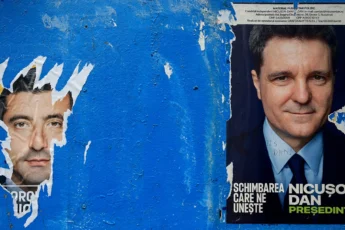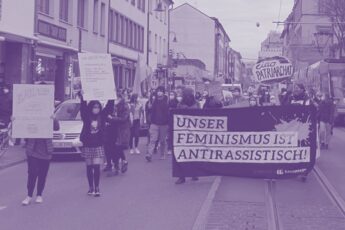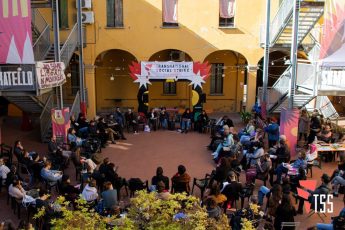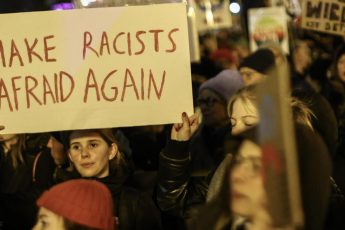
by TRANSNATIONAL SOCIAL STRIKE PLATFORM
With this document we aim at opening up a discussion with collectives of migrants and non-migrants, solidarity initiatives, unions around the issue of migrant labor and transnational organization against the current mobility regime.
I. Since its beginning, the Transnational Social Strike Platform has assumed the movements and the struggles of migrants as the cornerstone of its transnational political initiative, starting from its centrality in the continuous reconfiguration of the European space. A multinational workforce characterized by a steady mobility, by precariousness and confronted by a mobility regime with common trends is present today in Europe. Starting from this and from the individual and collective experiences of refusal and struggle that migrants practice every day, we would like to discuss how to consolidate a transnational field of struggle able to support migrants’ claim to freedom. In this direction we think it is necessary to start a broad discussion to build a common perspective and a common project.
II. In order to do this we must first think about the specific moment in which we are, as well as the longer-term trends. The mass arrival of migrants since 2015, while it has – at least temporarily – subsided, has not stopped. Migrants are changing Europe. The so-called migrant crisis has been one of those «emergencies» that has produced lasting effects in the way migrants are and will be «included» in European society. The summer of migrants has produced fractures between the EU and the Member States, fractures that now seem to be partially recomposed by the externalization of borders – with a consequent expansion of the European space beyond borders – and the drastic restriction of the possibility of accessing the European territory, as well as the possibility for migrants to decide for themselves where to go and what to do.
III. And yet, we face the fact that, in the last two years, at least two million men and women have arrived in Europe. The situation is ambivalent: while there are migrants that succeeded in their struggle to get an, although precarious, residence permit, while many of them made the experience of powerful collective struggles on their way or in their departure countries, one more million migrants entered since 2015 are in a limbo, struggling to find strategies against Dublin regulations and against deportations. New migrants and refugees are coming through the sea, in spite of the violence they face on the route and when they arrive. New generations of migrants are reconfiguring Europe: Europe is on the move, in spite of the new strategies implemented, the borders regime and its newly fashioned logistics methods. Migrants struggle every day to obtain documents and a house, not to be forced into precariousness, for family reunification, to escape the reception system mechanisms, against measures that try to drive them out or permanently block them in one place. What seems at stake now are the different yet connected conditions in which hundreds of thousands of migrants, women and men, are forced to reproduce their existence.
IV. The wave of migrants and the institutional racism that tries to control it have produced many initiatives of solidarity across Europe. This solidarity is fundamental, as well as the attempts to organize protests and strikes against unacceptable living conditions. However, we find ourselves in a situation in which the individual experiences of struggle remain isolated, producing only casual confluences (the example of the initiatives set up along the Balkan Route is indicative), due to conditions that cannot be reproduced or planned arbitrarily. We know that when it comes to imagining a transnational political communication we must face immediately the differences between our local and national situations. Different institutional behaviors, productive structures, labor laws, visa policies and workfare tools fragment the European space and interact with specific European directives. Within the same national territories there are places where it is possible to engage in profitable negotiations with the local institutions and places where the mayors of the cities have become the main actors of the security turn in the management of migration. It is not a matter of discussing how to homogenize our practices of struggle. Nonetheless, the transnational initiative should overcome these differences and identify, at the European level, those common trends that are asserted in different contexts and against which we can direct our energies. Moreover, these differences are one of the tools used by the European government of migrations to prevent connected issues from being recognized as such by a totality of subjects that are continuously divided and isolated. In thinking of a transnational initiative, it seems necessary to try first to take a step beyond the «specialism» of the initiative with migrants, which separates the migrant question from the transformations of labor, welfare, citizenship that also affect millions of European precarious and workers.
V. In this direction we would like to advance some points and questions we elaborated during the meetings of the TSS Platform. Our hypothesis is that focusing on the conditions through which migrants are now put to work and on the way in which mobility challenges this compulsion is key to understand the European mobility regime and for the insubordination against it. We are interested in discussing how the institutional interventions related to the European government of mobility are functional to create the conditions for migrants to be put to work in certain disadvantaged positions and with lower wages. And how this undermines, even with openly repressive interventions, the possibility of organizing and making a common front. It seems to us that the difficulty in obtaining residency and affording the costs of housing, the downward adjustment of welfare rights, the precariousness of documents or the impossibility of accessing any legal status should be politically considered in their connection, as conditions that put migrants in specific positions in the European labor market.
VI. It seems significant to us that while economic migration is generally demonized as an unacceptable claim, the EU and the Member States agree on a strictly economic evaluation: how can migrants be efficiently exploited in order to maximize profits, minimizing the trouble they can cause? To understand this perspective means, first of all, questioning the distinction between economic migrants and refugees that is at the core of public discourse and the legislation on this matter. If we take the example of the debate in Germany about the employment of refugees at wages below the minimum or about the way in which job centers intervene to ensure that refugees do not get decently payed jobs, we can see how the reception system itself involves the devaluation of migrant labor. Moreover, for many migrants in Europe there is no chance of obtaining any document: they are excluded from the recognition of a number of rights, but are included in an informal labor market. So far, expulsions have not been massive in any European country. Besides, the restriction of the possibilities to access any lasting legal status for newly arrived migrants goes along with the tendency to make the residence permits precarious even for those migrants who have been living in Europe since years. We have a proof of that in Munich, where the Bulgarian migrants who live in the streets wait every day to be picked up by the construction company on call, that buys them as commodities on the market, while they are not even able to rent a room. The result is a stratification and fragmentation of migrant labor, which corresponds to its political isolation, reproduced by institutional racism: different legal statuses, different access criteria to welfare (among citizens, European migrants, non-European migrants, refugees), different regulations of the residence permit. Dormitories and reception centers, housing and welfare, asylum and residence permits are parts of a logistics of exploitation of migrant labor that reproduces divisions and prevents political communication. The politics against migrants is an essential element of the general precarisation of labour and life.
VII. During a demonstration held in Italy against slavery in Libya, a migrant woman claimed: “We do not want to be welcomed, we want to be free!” She referred in particular to the way in which institutions assist women who have suffered rape and violence during their journey to Italy: they imprison them in group homes, where they pay protection with the impossibility of deciding about their own future. It seems to us that this claim has a broader meaning, that has to do both with the reception system and with solidarity initiatives. In recent years, we have seen that the reception system is a cage where migrants are trapped and that hinders them from determining their own life. In this cage, in addition to being kept hanging on for months or even years, they are put to work. Many of those migrants who end up in the various “jungles” scattered around Europe voluntarily fled from the reception system, not only because of the dramatic living conditions in the centers, often characterized by open violence, but also because they considered it an unbearable constraint. How to distinguish the practice of solidarity from the initiatives of actors and associations that contribute, even only providing information to job centers, to foster the idea that reception must be paid with a compulsory, poor and precarious work? How can we find common claims, to be used on a European scale, that do not inadvertently play into the hands of those who, behind the facade of solidarity and reception, produce the conditions for the exploitation of migrant labor? How do we support the migrants’ claim not only to be welcomed, but also to be free to move?
VIII. Besides the attempt to obtain improvements of often dramatic local situations, the question we ask is how to claim the possibility of a mobility free from institutional constraints and from the devaluation of labor they contribute to produce. Institutional regulation of mobility results in divisions inside and outside the workplaces, to such an extent that the political problem of contrasting this fragmentation is urgent also for non-migrant workers who have been oppressed by growing precarity for years. How, then, can we support migrant movements without reproducing a divisive and emergency-driven dynamic? How can we connect newly arrived migrants’ struggles to those of migrants who have been here for years and every day lose the power they conquered through past struggles? How can we discuss together in order to build a long-lasting, wide, transnational movement that could allow us to have power where we struggle everyday, in front of police stations, reception centers or the multiple borders placed between migrants and their freedom?
IX. In previous meeting we discussed and tried to translate these urgencies into the claim for a European residence permit without conditions, considering that the possession of documents is the first thing that allows migrants to cross the borders, while now the precarity of documents is the main obstacle for having a decent life. A claim that, if used on the European scale, can help to build a common voice against the distinctions between those who have and those who do not have the right to enter, between safe and non-safe countries, between refugees and economic migrants. A European residence permit without time limits, disentangled from the labor contract or any other condition, to be demanded to local, national and European institutions: we believe that a similar claim can work as a point of convergence for a series of local struggles, initiative and ongoing projects that put the freedom of movement for migrants and the opposition to rising institutional racism as their first goal. More than the claim itself, however, we’d like to discuss the problems it raises, the ones that can and cannot answer, keeping open the urgency to identify some common points on the European level towards which we can direct our organization. Nothing more than the movements of migrants brings us to the belief that transnational connections ought to be more than occasional convergences and that we should consolidate a political infrastructure for multiplying our capacity and give continuity to a common project of organization on migrants’ side.





